
As energy depletion and climate warming have become increasingly apparent in recent years, renewable energy and clean energy have received increasing attention. As a renewable energy source, the market demand for wood pellets continues to grow, and the industry has ushered in a stage of rapid development. Most developing countries recognize the importance to invest in wood pellet plant project, and Vietnam is no exception.
Vietnam's wood pellet industry has great potential, and its advantages are reflected in the following aspects.
Firstly, abundant raw materials. Vietnam is a typical agricultural country with rich planting industry, forestry, agricultural product processing industry, etc. Therefore, forestry waste, sawmill sawdust, fruit industry residues, pruning, agroforestry programs and many dedicated plantations offer unique potential for processing biomass pellets in Vietnam.
In addition, Vietnam mainly grows rice, corn, sorghum, sugar cane, peanuts, etc. It is the world's second largest rice exporter. Rice can be harvested twice a year, or even three times in South Vietnam. Abundant rice straw and rice husks can be directly made into biomass pellets in the wood pellet machine; crop straw, corn cobs, bagasse, peanut shells, etc. can also be easily processed into biomass pellets in the biomass pellet machine. In addition, Vietnam’s coffee export business ranks among the top in the world. After simple processing, the coffee shells can be pressed into pellets.
In addition, Vietnam is also rich in forest resources. Mountain forests cover about half of the land area, so abundant forestry waste can be recycled into biomass pellets. Vietnam's wood industry is large-scale and developing rapidly, providing abundant resources for the biomass pellet industry. Therefore, turning waste into treasure can achieve the goal of recycling natural resources;
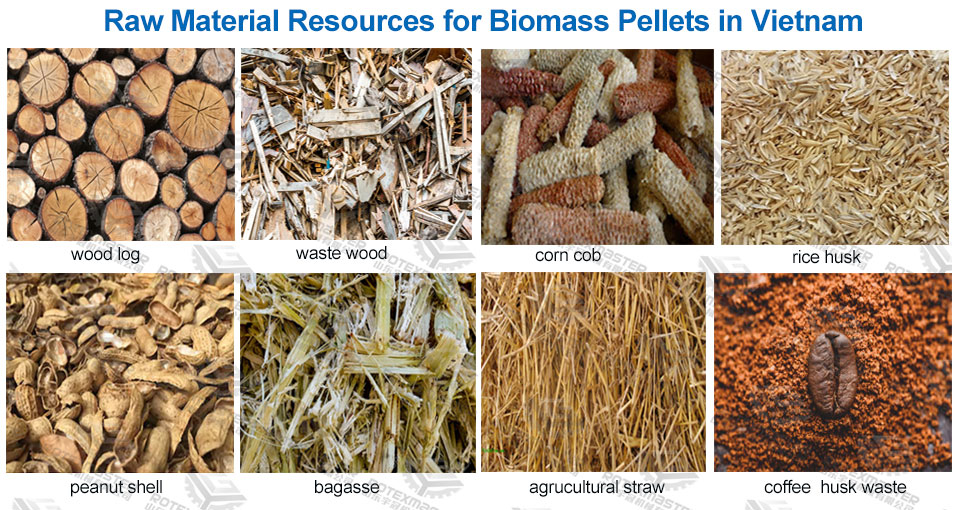
Secondly, policy support. The wood pellet industry is an environmentally friendly energy industry. With a series of renewable energy development policies and environmental protection policies issued by the Vietnamese government taking effect, the development of the wood pellet industry can enjoy the benefits brought by many policies, creating a favorable environment for the development of the wood pellet industry.
Thirdly, geographical advantage. The production raw materials are close to the export seaport and the transportation is convenient. This promoted Vietnam’s explosive growth in wood pellet exports.
Thanks to the above factors, Vietnam's wood pellet industry has shown a good development trend in recent years. According to statistics from the General Administration of Customs of Vietnam, Vietnam’s wood pellet exports reached 3.2 million tons in 2020, ranking second in the world. Vietnam has become the world’s second largest exporter of wood pellets after the United States. Currently, there are about 80 wood pellet production plants in Vietnam, mainly located in the southeastern region, followed by the northeastern region. Nearly 95% of the country's pellet production goes into two markets: South Korea and Japan. In Vietnam's northern and southern regions, 30% of the raw materials used to make pellets come from its domestic plantations, with the remainder coming from wood processing residues. In the central region of the country, 90% of raw materials come from domestic plantations, with the remaining 10% coming from residues.
The Vietnam Timber and Forest Products Association predicts that global consumer demand for wood pellets will continue to grow rapidly, injecting huge impetus into Vietnam to further expand the scale of wood pellet production and exports. From 2021 to 2030, the demand for wood pellets is expected to increase by about 250%, from 14 million tons in 2017 to 36 million tons in 2030. In addition to Japan and South Korea, many European countries are also using wood pellets as materials for various thermal power plants.
Experts believe that the wood pellet production industry has been in Vietnam for less than 10 years, but it is expected to become a multi-billion-dollar industry in the near future.
As professional manufacturer of wood pellet plants with more than 10 years’ experience, we Rotexmaster and Bolida can help you do your own wood pellet plant successfully. We can provide you turnkey solutions from 1 ton to 50 ton per hour wood pellet production line from factory design, project design, raw material test, equipment manufacturing, delivery, installation, commissioning, training etc. Welcome to contact us.
Wood Pellet Production Line Processing Process
How to Control the Feeding Rate of Wood Pellet Machine to Maximize Its Efficiency
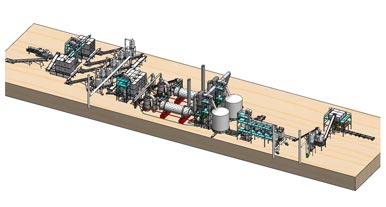
Mar. 21, 2025
How to build a medium-large scale biomass pellet plant: key steps and Investment guideline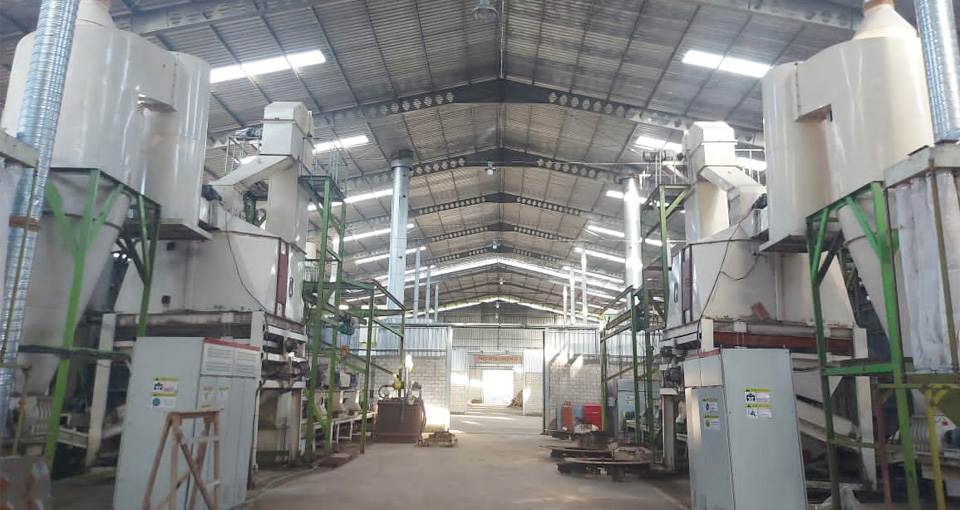 20t/h Wood Pellet Production Line in Indonesia
20t/h Wood Pellet Production Line in Indonesia
Country: Indonesia
Capacity: 20t/h
Raw Material: subtropical trees
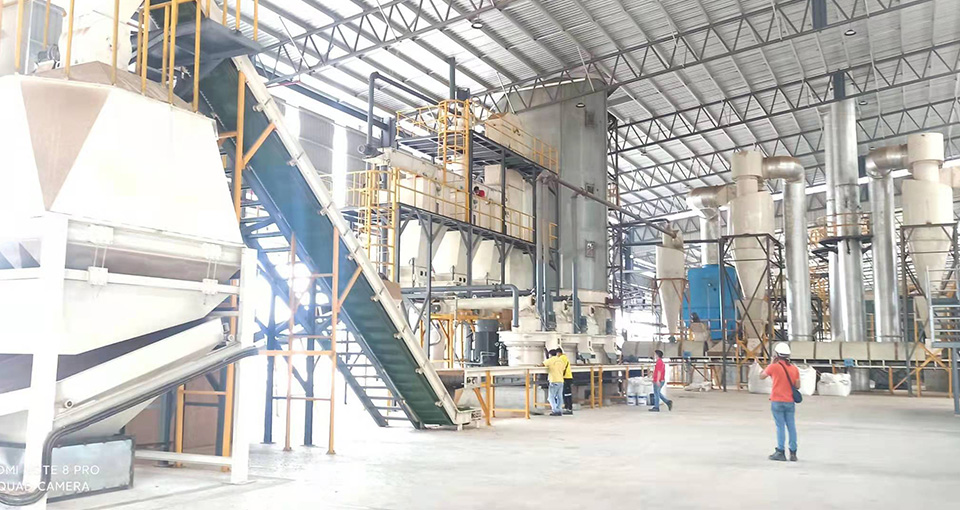 10t/h Wood Pellet Production Line in Malaysia
10t/h Wood Pellet Production Line in Malaysia
Country: Malaysia
Capacity: 10t/h
Raw Material: wood log (acacia wood, eucalyptus wood)
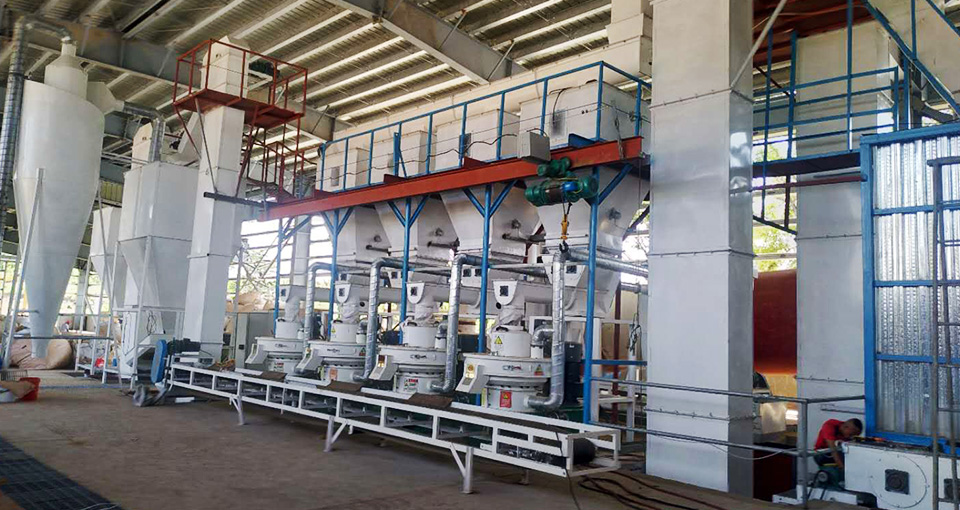 10t/h Wood Pellet Production Line in Philippines
10t/h Wood Pellet Production Line in Philippines
Country: Philippines
Capacity: 10t/h
Raw Material: wood log
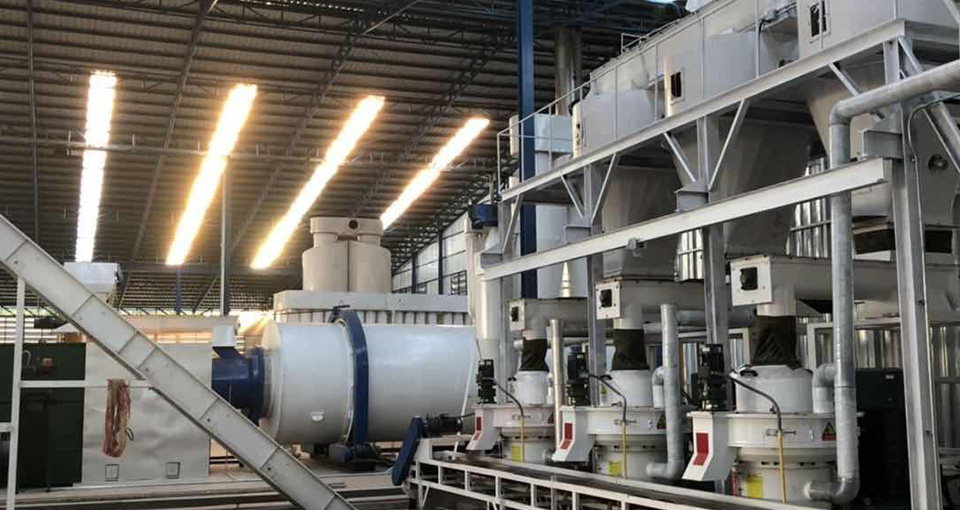 6t/h Wood Pellet Production Line in Thailand
6t/h Wood Pellet Production Line in Thailand
Country: Thailand
Capacity: 6t/h
Raw Material: wood log